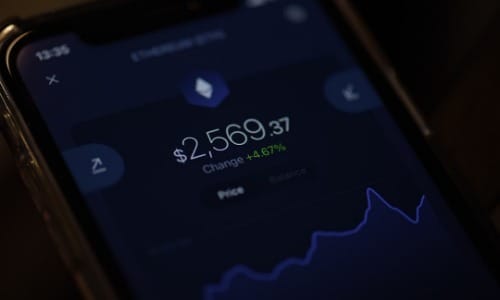
Cryptocurrency trading platforms are digital marketplaces that allow users to buy, sell, and exchange cryptocurrencies. These platforms vary widely in terms of features, security, fees, and available cryptocurrencies. Here’s a comprehensive overview to help you understand the landscape.
Types of Cryptocurrency Trading Platforms
Centralized Exchanges (CEXs)
Centralized exchanges are operated by companies that act as intermediaries between buyers and sellers:
- Coinbase
- Beginner-friendly with intuitive interface
- Strong security measures and regulatory compliance
- Higher fees compared to competitors (0.5-1.49% per trade)
- Supports 200+ cryptocurrencies
- FDIC-insured USD balances up to $250,000
- Binance
- World’s largest exchange by trading volume
- Low trading fees (0.1%, with discounts available)
- Extensive selection of 350+ cryptocurrencies
- Advanced trading features and high liquidity
- Different platforms for different regions (Binance.US for American users)
- Kraken
- Strong security track record
- Moderate fees (0.16%-0.26% for most traders)
- 120+ cryptocurrencies available
- Regulated in multiple jurisdictions
- Advanced features like margin trading and futures
- Gemini
- Founded by the Winklevoss twins
- Focus on security and regulatory compliance
- Higher fees than some competitors
- Insurance coverage for digital assets
- ActiveTrader platform for advanced users
- KuCoin
- Known for listing many altcoins early
- Competitive fees (0.1% standard)
- 700+ cryptocurrencies available
- Features like lending, staking, and futures trading
- No mandatory KYC for basic accounts (though limits apply)
Decentralized Exchanges (DEXs)
DEXs operate without a central authority, connecting users directly through smart contracts:
- Uniswap
- Leading Ethereum-based DEX
- No KYC requirements
- Non-custodial (you maintain control of your assets)
- Supports any ERC-20 token
- Higher transaction costs due to Ethereum gas fees
- PancakeSwap
- Built on BNB Chain (formerly Binance Smart Chain)
- Lower fees than Ethereum-based DEXs
- Additional features like yield farming and lottery
- Less decentralized than some competitors
- Active development and user community
- dYdX
- Focuses on derivatives and perpetual contracts
- Layer 2 solution for lower fees
- Advanced trading features
- No KYC for basic trading
- Limited selection compared to spot trading DEXs
Key Factors to Consider When Choosing a Platform
Security
- Cold storage: Percentage of funds kept in offline storage
- Two-factor authentication (2FA): Additional login security
- Insurance coverage: Protection against hacks or theft
- Security track record: History of breaches or successful security measures
- Regulatory compliance: Licensed operation in relevant jurisdictions
Fees
- Trading fees: Maker/taker fees (typically 0.1%-0.5%)
- Deposit/withdrawal fees: Costs to move money in and out
- Conversion fees: Charges for converting between currencies
- Gas fees: Transaction costs on blockchain networks (especially for DEXs)
- Hidden fees: Spreads, convenience fees, etc.
Available Cryptocurrencies
- Number of supported coins/tokens: Ranges from dozens to hundreds
- Trading pairs: Direct exchange options between cryptocurrencies
- Fiat on-ramps: Ability to deposit traditional currencies
- New listings: Frequency of adding new cryptocurrencies
User Experience
- Interface complexity: Beginner vs. advanced interfaces
- Mobile app availability: Trading on the go
- Customer support: Response times and support channels
- Educational resources: Guides, tutorials, and learning materials
- Account verification process: KYC requirements and processing time
Additional Features
- Staking: Earning passive income on crypto holdings
- Lending/borrowing: DeFi services on the platform
- Futures/derivatives: Advanced trading options
- Credit/debit cards: Crypto-backed payment cards
- NFT marketplaces: Trading non-fungible tokens
Regional Considerations
Different platforms have varying availability and features depending on your location:
- United States: Stricter regulations limit some exchanges; popular choices include Coinbase, Kraken, Gemini, and Binance.US
- Europe: Access to most major exchanges with varying compliance requirements
- Asia: Home to many exchanges with region-specific platforms
- Restricted countries: Certain nations have limited or banned cryptocurrency trading
Getting Started with Cryptocurrency Trading
- Research and select a platform based on your needs (security, fees, available coins)
- Create an account and complete verification requirements
- Set up security features like 2FA and withdrawal whitelisting
- Fund your account through bank transfer, credit card, or cryptocurrency deposit
- Start with small trades to understand the platform’s interface
- Consider a hardware wallet for long-term storage of significant holdings
Remember that cryptocurrency trading involves significant risk, including the potential loss of your investment. Prices are highly volatile, and markets operate 24/7. Only invest what you can afford to lose and consider consulting with a financial advisor before making significant investments.






